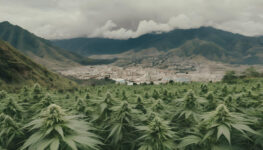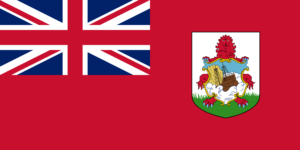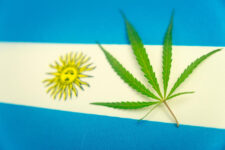Amidst the global shift towards relaxing cannabis laws, El Salvador presents a contrasting picture with its stringent prohibition of both recreational and medical marijuana. This Central American country’s approach to cannabis regulation is a significant outlier, especially in a world where many nations are reconsidering their stance on marijuana. Understanding El Salvador’s legal landscape is essential, as it highlights the complexities and varied nature of global cannabis policies. The country’s firm stance against legalization, influenced by cultural, social, and legal factors, sets a unique context for discussing cannabis laws.
Key Takeaways
- El Salvador enforces a complete ban on cannabis, including medical marijuana, aligning with its conservative drug policies.
- The legal system in El Salvador imposes harsh penalties for cannabis possession, cultivation, and trafficking, reflecting its stringent approach.
- Despite global trends and some domestic advocacy, efforts towards cannabis decriminalization or medical legalization in El Salvador have seen little success and remain a contentious issue.
Historical Overview of Cannabis Regulation in El Salvador
El Salvador’s cannabis laws have consistently been among the strictest in Latin America. The country’s approach to drug policy, shaped by its adherence to international drug control treaties like the 1988 United Nations Convention, has led to the criminalization of cannabis production, distribution, and use. In 2003, El Salvador enacted drug reform legislation, which, while slightly more lenient on simple possession, significantly increased penalties for production and trafficking. This shift reflected a broader concern over drug-related crime and public health issues.
Culturally and socially, El Salvador has been influenced by a strong anti-drug sentiment, largely driven by the nation’s history of violence and crime associated with drug trafficking. Public opinion has generally been unfavorable towards cannabis, seeing it as a gateway to more serious drug abuse and criminal activity. Despite this, there have been notable instances of advocacy for decriminalization. For example, in 2014, over 700 people protested in San Salvador for decriminalizing cannabis consumption and personal cultivation, indicating a growing, though still minor, support for reform. However, these efforts have yet to make a significant impact on the country’s stringent cannabis laws.
Medical Cannabis in El Salvador: Legal Provisions and Accessibility
In El Salvador, the legal framework does not recognize medical cannabis, and there are no provisions for its use or accessibility. Efforts to introduce legislation for medical marijuana have faced significant resistance, reflecting the country’s conservative stance on drug policy. The absence of a medical marijuana program means patients seeking cannabis for therapeutic purposes have no legal means to obtain it. This situation persists despite some advocacy, both internationally and locally, for the potential medical benefits of cannabis.
The conservative nature of El Salvador’s drug policies, coupled with prevailing public opinion against legalization, has been a major barrier to establishing legal access to medical cannabis. In 2019, there was a legislative proposal to legalize cannabis for medical use and allow domestic production and imports for medical purposes. However, this initiative did not gain the necessary support and failed to progress. The proposal’s lack of success highlights the challenges faced in shifting the legal and cultural landscape regarding cannabis in El Salvador. As a result, patients in need of medical cannabis are left without legal options, reflecting the broader issues of drug policy and healthcare access in the country.
Current Legal Status of Recreational Marijuana in El Salvador
Recreational cannabis in El Salvador is illegal, with the law imposing strict penalties for its possession, cultivation, and trafficking. The legal framework does not differentiate between cannabis and other narcotics, applying equally harsh penalties for all illicit substances. Individuals found with small amounts of cannabis can face imprisonment, and the penalties escalate significantly for larger quantities or evidence of trafficking. The threshold for possession is notably low, and exceeding this amount can lead to accusations of trafficking.
Despite some public discourse and advocacy for decriminalization, there has been no legislative movement towards legalizing or decriminalizing recreational cannabis use. The country’s laws reflect a zero-tolerance approach to drugs, influenced by concerns over public health and crime. This stance is consistent with the broader conservative attitude towards drugs in El Salvador. The lack of differentiation in the legal treatment of various drugs, including cannabis, underscores the country’s rigid approach to drug policy. As a result, recreational cannabis users face significant legal risks, and the prospect of legal reform in this area remains distant.
Possession, Cultivation, and Consumption: What’s Allowed in El Salvador?
In El Salvador, the legal penalties for these activities are severe, with imprisonment ranging from a few years for minor possession to over a decade for cultivation or trafficking. The legal threshold for possession is very low, with any amount exceeding this potentially leading to accusations of trafficking. Cultivation of cannabis for personal or medical use is strictly forbidden, and there are no legal avenues for purchasing cannabis in the country.
The legal framework does not distinguish between different types of drugs, meaning that the penalties for cannabis are as severe as those for more potent narcotics. This lack of distinction reflects the country’s hardline stance on drug control. The strict laws extend to all forms of cannabis, including hemp, which is also subject to the same legal restrictions. As a result, individuals involved in any aspect of cannabis – from casual users to those attempting cultivation for personal use – face significant legal risks. The absence of any legal framework for cannabis, whether for recreational or medical purposes, underscores the comprehensive nature of the prohibition in El Salvador.
What Future for Cannabis Legislation in El Salvador?
The future of cannabis legislation in El Salvador remains uncertain and largely unpromising. While there have been some discussions and proposals for reform, particularly regarding medical marijuana, these have not gained significant traction. The prevailing conservative attitude towards drugs, coupled with a lack of substantial public support for legalization, suggests that major changes in cannabis legislation are unlikely in the near future. However, as global perspectives on cannabis continue to evolve, there may be room for gradual shifts in policy and public opinion in El Salvador, though any significant legal changes appear distant.
To Sum Up
Is Marijuana legal in El Salvador? The answer is a definitive no. El Salvador maintains strict laws against both recreational and medical cannabis, with severe penalties for possession, cultivation, and trafficking. Despite the global trend towards legalization, El Salvador’s conservative stance on drug policy remains unchanged. For those interested in the evolving landscape of cannabis laws, El Salvador serves as an example of a nation firmly opposed to legalization, reflecting broader cultural and social attitudes towards drugs.









